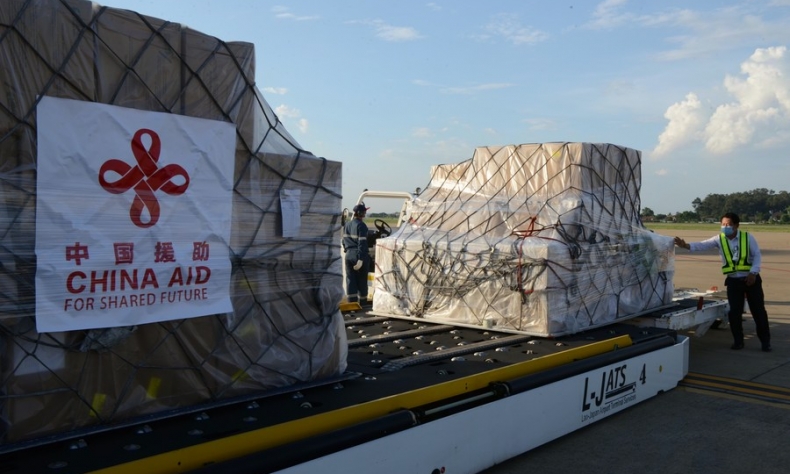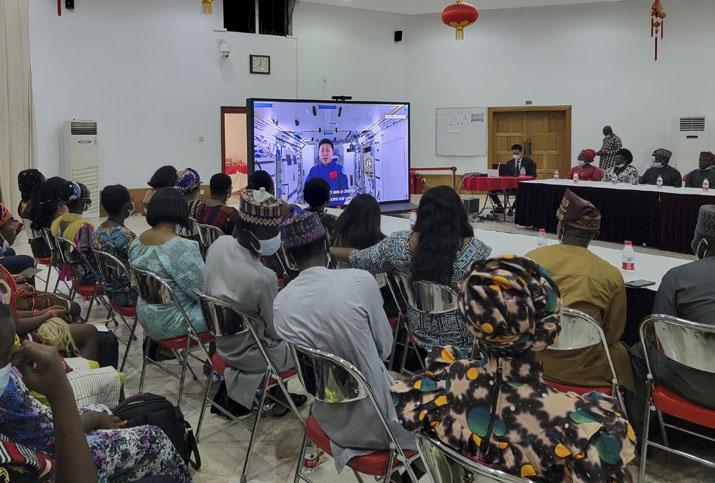Pursuing Common Development with Africa

The GDI gives impetus to the profound vision of a community with a shared future for humanity. A paradigm away from the unhealthy and anti-competitive behavior is critical as this is leading to a regressive, hostile and destructive global environment.
Article 55 of Chapter IX of the UN Charter states: “With a view to the creation of conditions of stability and wellbeing which are necessary for peaceful and friendly relations among nations based on respect for the principle of equal rights and self-determination of peoples, the United Nations shall promote: higher standards of living, full employment, and conditions of economic and social progress and development; solutions of international economic, social, health, and related problems; and international cultural and educational cooperation; and universal respect for, and observance of, human rights and fundamental freedoms for all without distinction as to race, sex, language, or religion.”
With this noble vision in mind and to spur its realization, Chinese President Xi Jinping put forward the Global Development Initiative (GDI) at the General Debate of the 76th Session of the UN General Assembly in September 2021. The initiative calls on the international community to place development high on the global macro policy agenda, accelerate the implementation of the UN’s 2030 Agenda for Sustainable Development, and work together to steer global development toward a more balanced, coordinated and inclusive phase.
President Xi’s initiative sets in motion a process to counter the current volatile geopolitical situation in a proactive manner and recognizes that the present inflection moment is an opportunity to initiate and inject fresh thinking to generate new ideas for global development.
To push global common development, China established the Center for International Knowledge on Development (CIKD), which is tasked with producing the Global Development Report. It was conceived at the UN Sustainable Development Summit in September 2015 and was officially launched in August 2017. The latest report, released in July, said, “The mandate of CIKD is to study and exchange with other countries the development theories and practices suitable to their respective national conditions. Its main functions are to pool and coordinate domestic and international development research resources, to undertake research on development theories and practices, and to organize exchanges of research findings on international development issues, including the implementation of the UN’s 2030 Agenda for Sustainable Development.”

The GDI draws on China’s remarkable progress in the past decade. China has garnered a great deal of knowledge on development and has gained immense experience in international relations and diplomacy. The once poor and underdeveloped Chinese society now enjoys moderate prosperity.
It also gives impetus to the profound vision of a community with a shared future for humanity. A paradigm away from the unhealthy and anti-competitive behavior is critical as this is leading to a regressive, hostile and destructive global environment. The black swan event, COVID-19, has led to a decline across many human development indicators and has exposed the weaknesses of a global system riddled with greed, corruption, manipulation and double standards.
More than 100 countries and international organizations have expressed their support to the GDI in a true spirit of multilateralism and inclusivity. The initiative is an open platform for sci-tech cooperation, knowledge sharing and capacity-building, among other areas. Leading by example, China has recently granted zero-tariff treatment to 98 percent of taxable items originating in 16 least developed countries. China has also opened green lanes for faster export of African agricultural exports to China and speeded up the inspection and quarantine procedures.
Africa, a naturally abundant continent, is once again central to global development and progress. Geographically, the vast continent is the only landmass that is spread across all four hemispheres. Africa covers 6 percent of the Earth’s surface and 20 percent of the total land area. It is the world’s second largest and second most populous continent after Asia. Of the 193 member nations of the UN, 54 are in Africa, making up 27 percent of the total representation at the world body.
China’s zero-tariff policy will boost African agricultural exports by billions of U.S. dollars over the coming years. This indicates that China is working to push common development under the GDI framework.
The author is director of the Diplomatic Society of South Africa.
 Facebook
Facebook
 Twitter
Twitter
 Linkedin
Linkedin
 Google +
Google +










